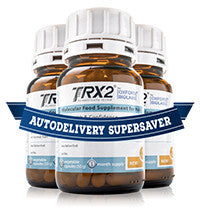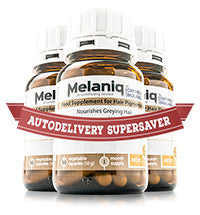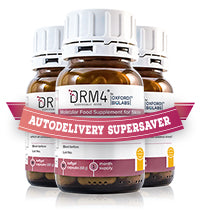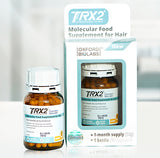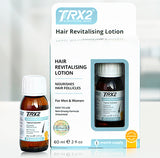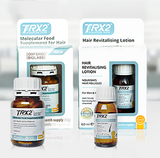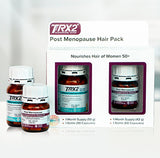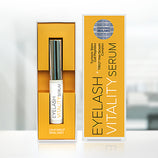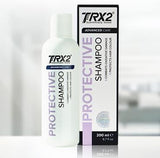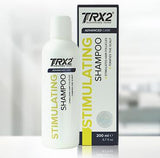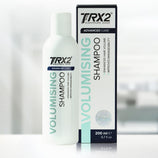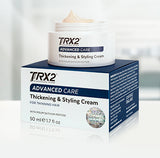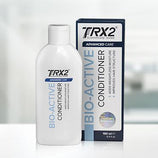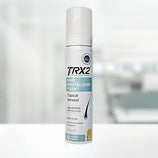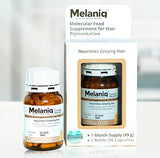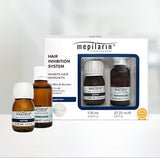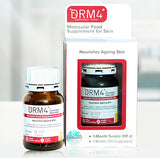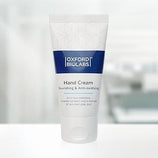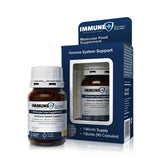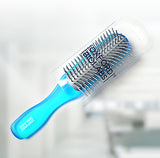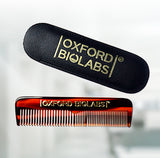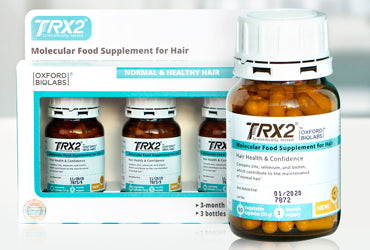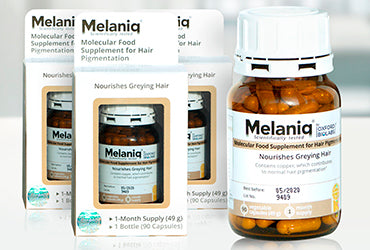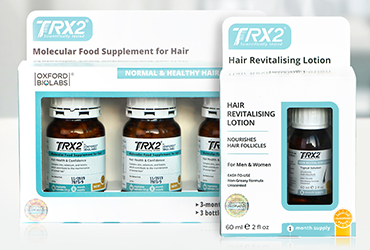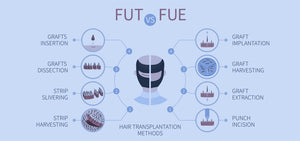Which Vitamin Supplements Can Improve Hair Volume?
When researching how to make hair thicker and stronger, vitamin supplements should be one of the first stops. There are a slew of hair volume vitamins on the market today, and although it can be difficult to decide between them, the science shows that there is a direct correlation between nutrition and healthy hair.
Below, are the most effective vitamins for hair growth. Supercharging the body with these minerals will help hair follicles operate at peak efficiency, turning out beautiful, shiny, healthy hair at top speed.
Niacin
Vitamin B3, commonly known as niacin, is a key factor in blood circulation. It helps bring oxygen and other nutrients to every part of the body, including the hair follicles. Follicles need to be well-supplied in order to make hair thicker and stronger, with plenty of volume and shine.
Even if one eats the right foods, a niacin deficiency will keep those nutrients from reaching the areas they’re needed most. Using other hair volume supplements and not seeing the desired results? Try adding niacin to the mix.
Vitamin D
Hair follicles have a special relationship with vitamin D. It’s so important to the hair growing process that follicles have dedicated receptors just for this single nutrient. When the body is not supplied with enough vitamin D, hair loss is one of the first consequences.
Vitamin D is naturally produced by the human body when exposed to sunlight. However, in modern life, most people get less sun exposure than their ancestors. Recent studies show that up to 70% of the population may be vitamin D deficient.
Biotin
The effects of biotin on hair growth and volume are well-known to the scientific community. There’s a good reason why it’s an ingredient in almost every reputable supplement for hair, skin and nails. In fact, biotin is sometimes called Vitamin H, with the H standing for “hair” (or “Haar und Haut”, in the German circles that bestowed the nickname).
Biotin is easily available in a variety of food sources, from meat and dairy to green leafy vegetables, but using a supplement to supercharge intake can make a fast and dramatic difference in the health and quality of hair.
Omega-3 Fatty Acids

Omega-3, commonly found in seafood and fish oil supplements, is a true superfood. It’s a powerful antioxidant that keeps one young, and it does some amazing things that help hair stay healthy and strong.
Along with its cousin DHA, Omega-3 fights inflammation across the entire body. It’s also a natural sunscreen and a hydrator, ensuring the hair follicles can stand up to the sun. Protecting hair follicles from irritation and damage is one of the best things that can be done for the health of hair. Hair isn’t considered a vital function by the body, and follicles are all too quick to shut down when the going gets tough.
Vitamin E
Vitamin E is another antioxidant, bonding with free radicals before they can do damage. Free radicals are natural byproducts of body’s metabolic processes, although they can also be introduced by external sources like radiation or chemicals. Secondhand cigarette smoke, for example, is a well-known danger for the way it floods the system with these harmful particles.
When free radicals interact with cells, including the ones that make up hair follicles, they break down cell walls and can even alter DNA, causing anything from hair loss to cancer.
Vitamin E and other antioxidants drift through the body, carried in the blood or stored in tissue. Free radicals will bond with them instead of with cells, sparing us their harmful effects.
Silica
Silica, or silicon dioxide, is a relative newcomer to the world of hair supplements. It’s found in trace amounts in most foods, but the idea that one may be deficient in it is a recent one.
However, silica’s positive effects on hair thickness and growth cannot be denied. Silica helps regulate the body’s acidic pH, balances the sex hormones, and flattens the hair follicles. It’s also a great nutrient transporter, just like niacin.
Supplements containing silica are only now beginning to reach the mass market, but their effects so far are astonishing. Silica supplementation can thicken hair within weeks, making it fuller, shinier, and healthier.
Vitamin C

The citrus vitamin has long been celebrated for its immune system boosting effects, but recent studies show that it’s also important for hair volume. To be more precise, it’s a deficiency of vitamin C that leads to thin, brittle hair, or even baldness.
Vitamin C is also excellent for the skin when applied topically. It helps prevent rashes and acne outbreaks, and when applied to the scalp, it helps keep these nuisances from adversely affecting hair follicles.
Although drastically increasing vitamin C intake won’t necessarily help hair directly, making sure to always have an adequate supply will save on from grief in the long run. Prevention is better than cure, as the saying goes.
Riboflavin
Riboflavin, or vitamin B2, is another antioxidant that does wonders for hair and the entire body. Protecting cells from free radicals is incredibly important to healthy hair, and antioxidants are the first and best line of defense.
Vitamin B2 serves another important purpose for hair in that it teams up with vitamins B3 and B6. All three of them are used by the follicles to keep hair from thinning out, growing brittle, or going gray. Without B2, though, B3 and B6 lie dormant in the bloodstream. B2 serves as an activator, carrying the other vitamins to the scalp and allowing follicles to make use of them.
Vitamin B5
More scientifically known as pantothenic acid, vitamin B5 plays an important role in metabolising fat and protein.
Metabolism, the process of converting food into energy and nutrients, is what lets the body take food and ultimately turn them into new cells. This applies to hair, skin, and nails, and all over the body.
B5 also helps regulate the sex hormones, testosterone and estrogen. People of both genders carry both hormones, but keeping them in balance is vital to the health of hair. Produce too little or too much of either hormone, and baldness quickly results.
Vitamin A
Vitamin A doesn’t directly affect the hair follicles as much as other vitamins listed here, but its role in hair growth is no less important. This vitamin is used to regulate the production of sebum, a natural oil that comes from the sebaceous glands.
Sebum provides a protective layer to the skin and hair. It’s the slight oiliness that one can feel on the skin, which guarantees skin and hair don’t dry out in the sun..
Produce too much sebum, though, and it can plug up the hair follicles. This physically prevents them from extruding more hair, which immediately leads to visibly thinner hair. Eventually, it kills the follicles, stopping them from growing healthy hair ever again.
Luckily, vitamin A is easily available in plant and fruit sources, as well as in supplement form.
A Note on Side Effects of Hair Volume Vitamins
As with any supplements, it’s important to stick to the recommended dosages of these hair volume vitamins. Taking too much of a vitamin is known as vitamin toxicity. It’s difficult to take enough of water-soluble vitamins like vitamin B to reach toxic levels, but fat-soluble nutrients like vitamin D can accumulate in the body and cause problems over the long-term.
When choosing vitamins, pay attention to the recommended daily allowance, the number of pills to take at one time, and any potential interactions with medications or other supplements.
Before beginning a vitamin regimen, consult a healthcare professional.
Taken correctly, though, these vitamins are sure to help volumise hair, and improve shine, strength, and general health. Also, using the proper hair care products (shampoo and conditioner) with natural plant extracts stimulates hair growth. Almost everyone is deficient in at least one vitamin in today’s world. Anything that can be done to alleviate a vitamin deficiency is a positive step.